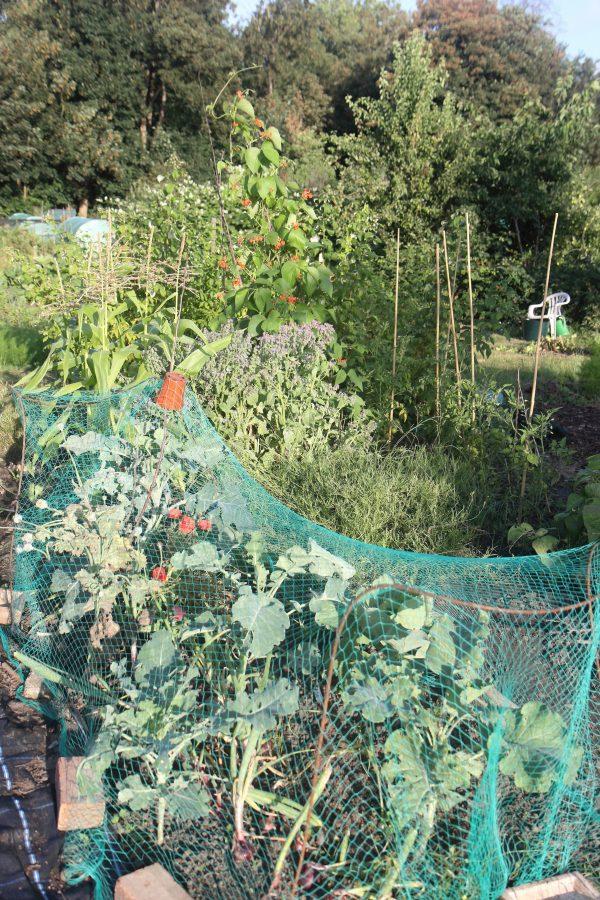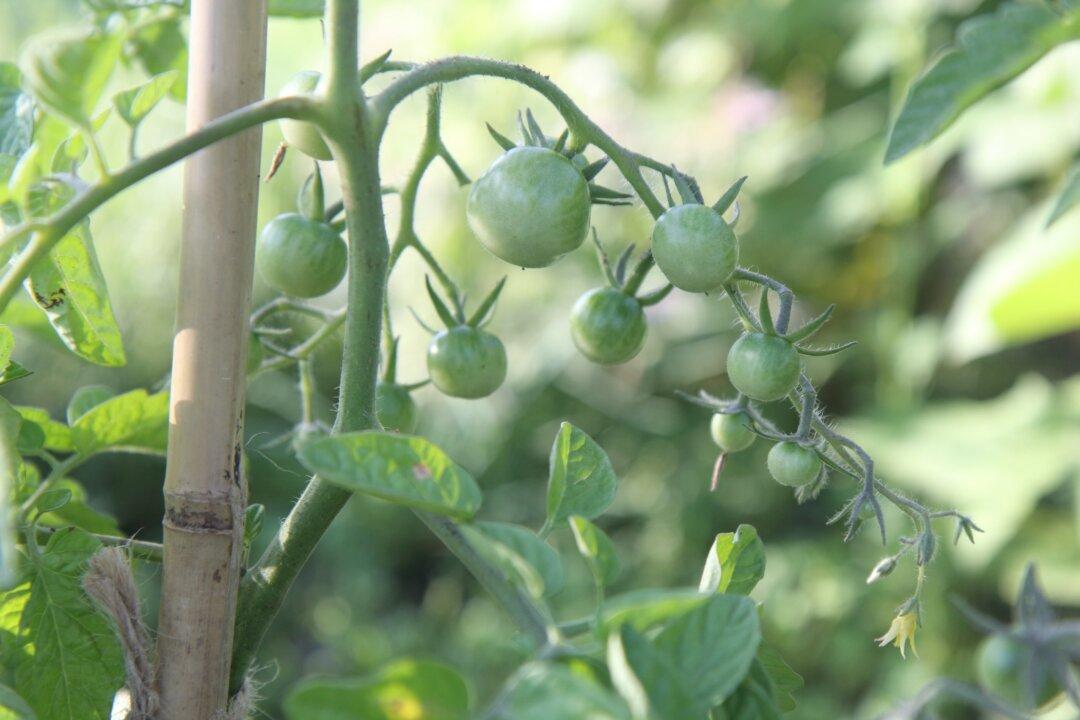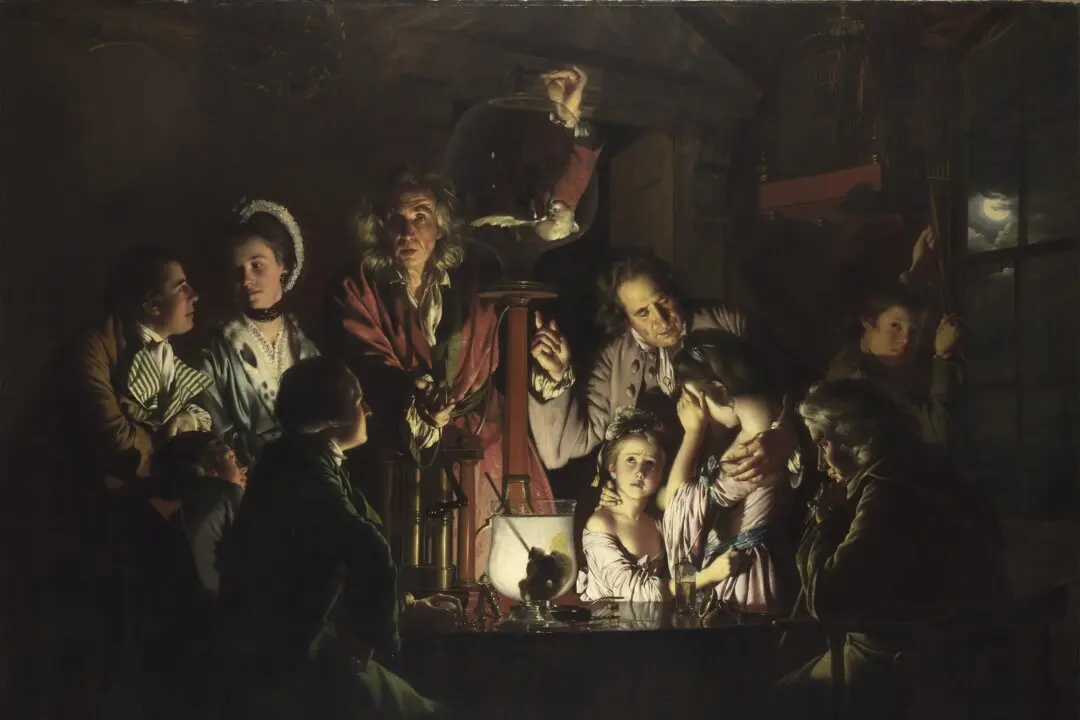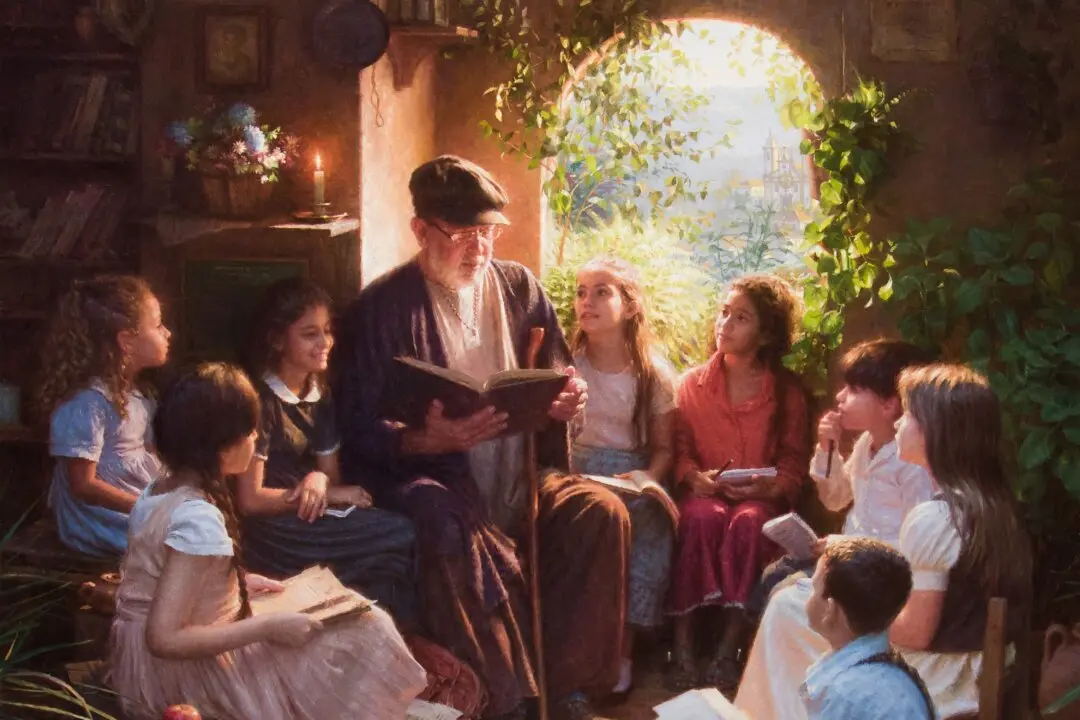BECKENHAM, England—The runner beans are running amok; laden with red flowers, they weave their way skyward up poles as their lower runners reach out to the green tomatoes that are fattening up, ready to ripen. Spears of corn are beginning to form, standing tall beside their favorite companion, the pepper, which continues to bloom in concert with its tiny fruits.

A snapshot of my small allotment plot, where cabbages, sprouting broccoli, and kale grow in the foreground. Spears of corn stand tall at the end of the netting, and to the right of the corn, the runner beans tower above them all. Lorraine Ferrier/The Epoch Times






